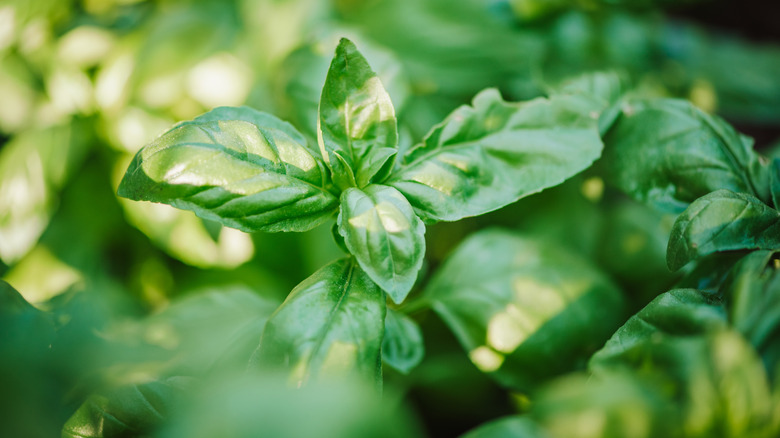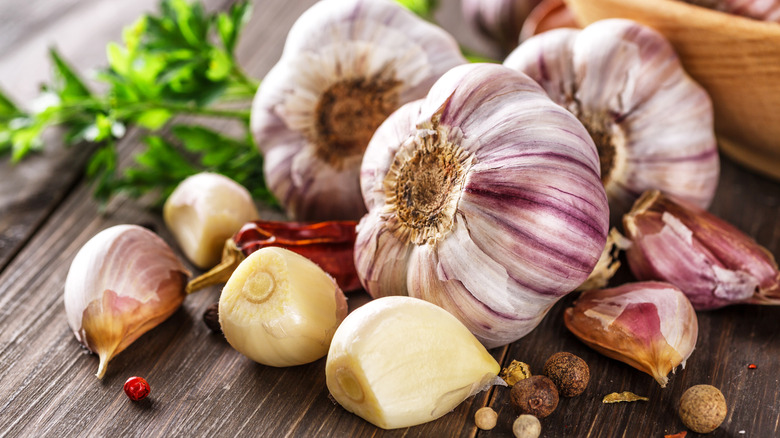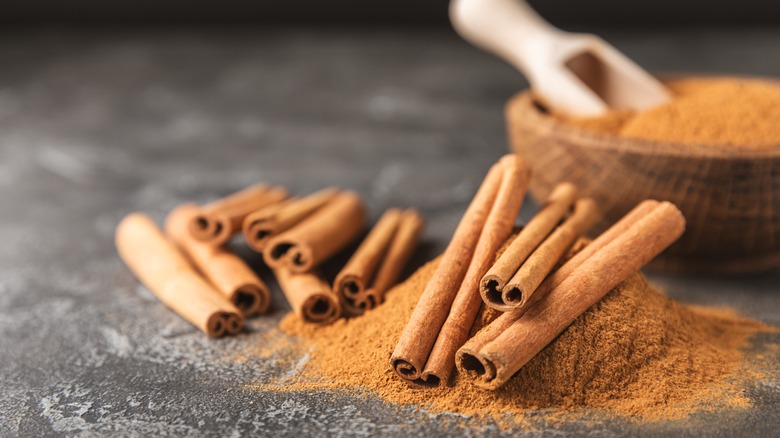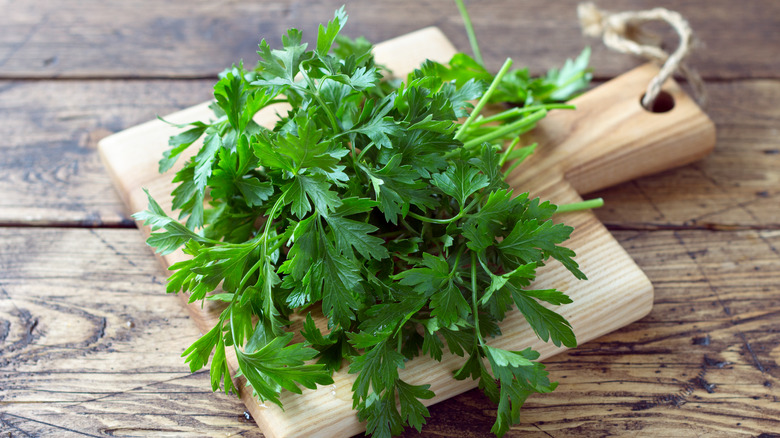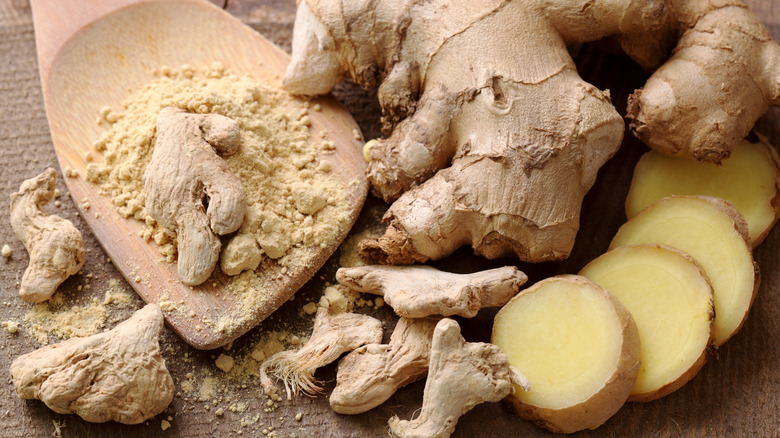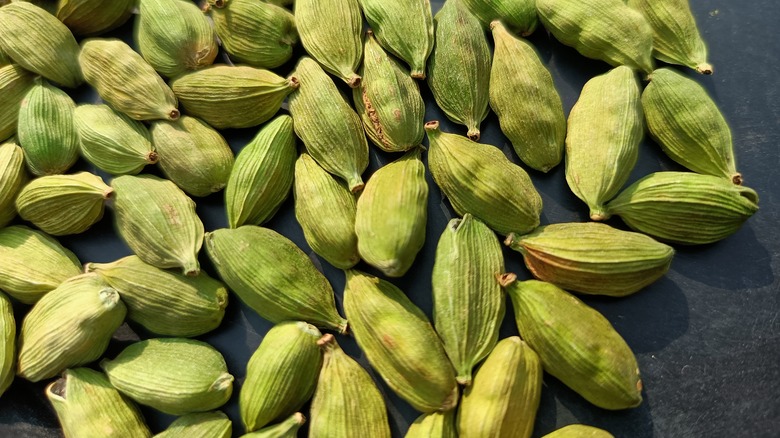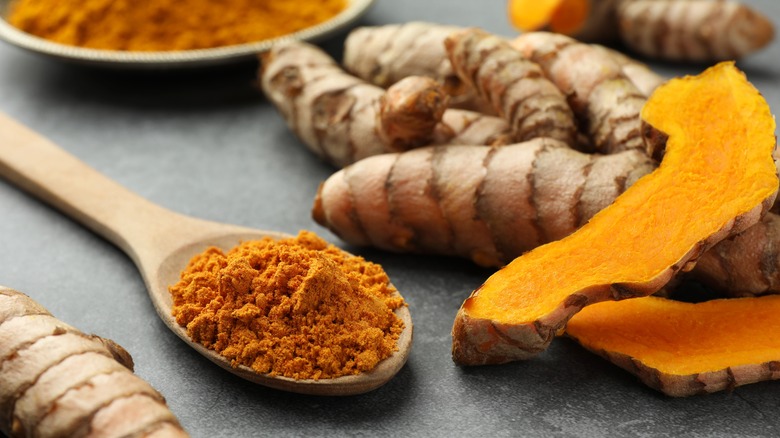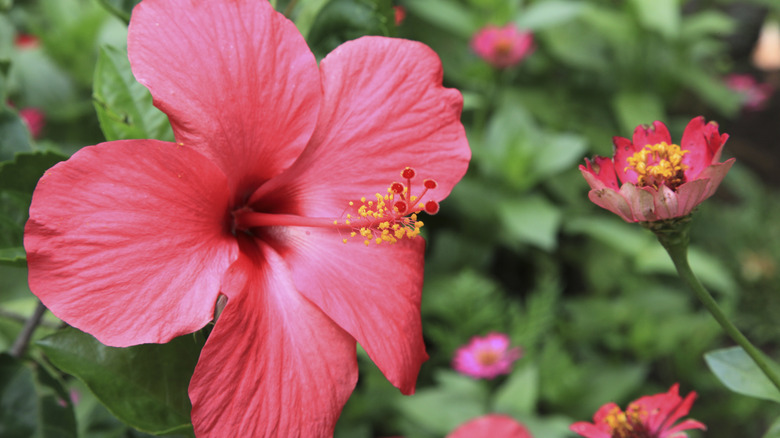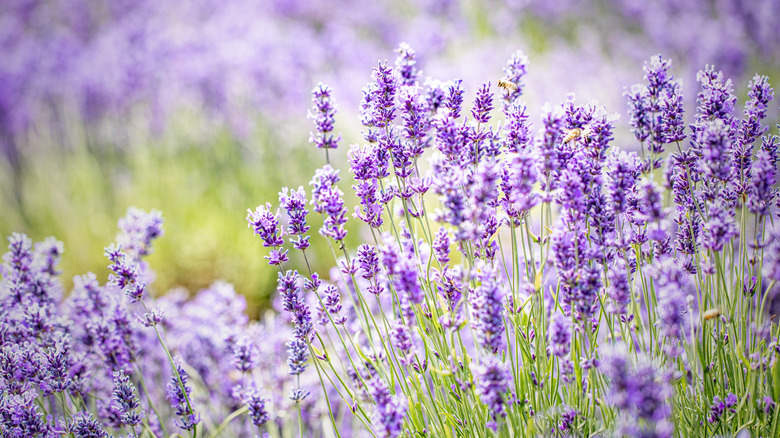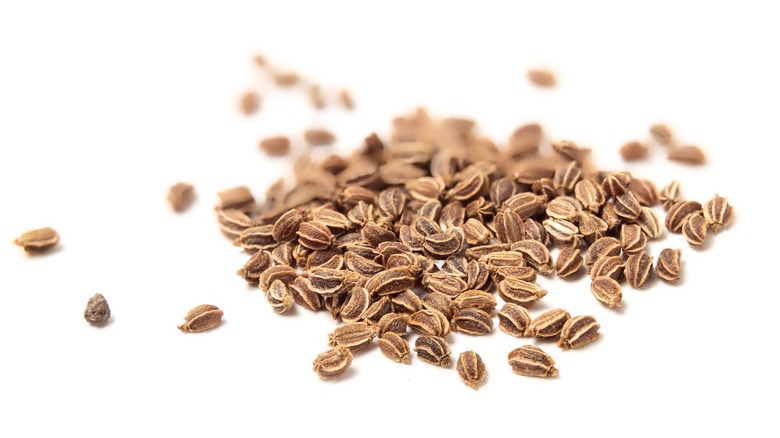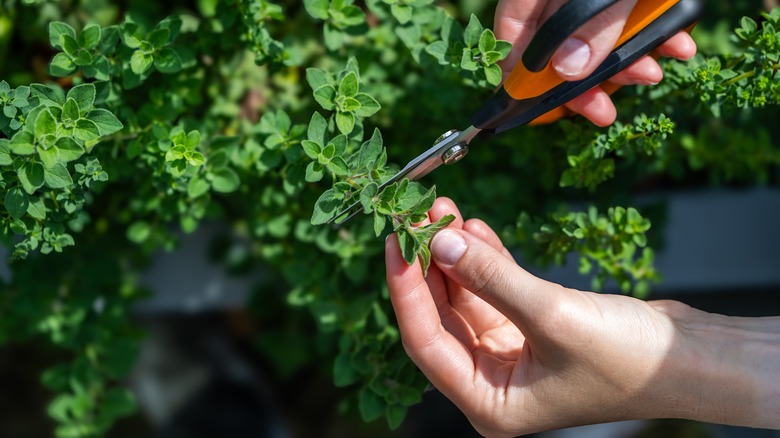Popular Herbs That Can Help Lower High Blood Pressure
High blood pressure, often dubbed the "silent killer," affects almost half of adults across America. Many people don't even know they have it because the condition doesn't show any noticeable symptoms. High blood pressure, also called hypertension, occurs when the force of blood flowing through your blood vessels is too high, damaging your arteries over time. Untreated high blood pressure is dangerous and can lead to serious health issues like heart attacks, strokes, kidney disease, vision loss, and more. The only way to find out if you have high blood pressure is by visiting a healthcare professional for a checkup.
General treatment plans for high blood pressure often include certain medications, as well as diet and lifestyle modifications. Many doctors recommend the Dietary Approaches to Stop Hypertension (DASH) eating plan, which has been shown through scientific studies to help lower blood pressure. The DASH diet is high in fruits, vegetables, and grains and low in sodium and sugar. Research shows that lower salt intake is linked with lower blood pressure.
Many common herbs, some of which may already be in your kitchen cabinet, can also help lower high blood pressure. Including these herbs in some of your daily meals, along with maintaining a balanced diet and a healthy lifestyle, can help address high blood pressure. However, because dosages and drug interactions can vary when taking these herbs as supplements in pill form, it's generally recommended to consult your healthcare practitioner before adding herbal supplements to your daily routine.
Basil
The popular plant that plays a key role in pesto and pizza may also help lower your blood pressure. There are many different varieties of basil in the world, the most common species used in cooking and found in grocery stores is sweet basil, with the Latin name Ocimum basilicum. Other popular varieties include Thai basil, Greek basil, cinnamon basil, and lettuce basil. Holy basil (O. tenuiflorum and O. sanctum), a related but different species, is the variety most commonly found in supplements and herbal teas for its stress-relieving benefits, while sweet basil (O. basilicum) is the species that has been most studied for its effects on blood pressure.
Sweet basil has long been used in traditional Chinese medicine (TCM) to address cardiovascular diseases, including hypertension. A 2021 research article published in MicroMedicine found that participants who consumed 128 milligrams of dried powdered basil (O. basilicum) leaves each day had significantly lower blood pressure results after 2 weeks compared to the control group that took the placebo. All participants in the study also took their prescribed antihypertensive medication.
Sweet basil's health benefits don't stop there. Basil is a good source of vitamin K, which is important for bone health and helps blood clot to promote the healing of wounds. It also contains antioxidants and anti-inflammatory qualities that help boost overall health and well-being.
Garlic
In ancient times, garlic did more than just repel vampires. Before the invention of modern medicine and antibiotics, garlic was often used as a first line of defense against epidemics like typhus, dysentery, cholera, and influenza. A 2020 journal article published in Experimental and Therapeutic Medicine mentioned that garlic supplements taken alone or coupled with hypertension medications not only lowered high blood pressure but were also estimated to reduce the chances of cardiovascular issues such as heart attack, coronary artery disease, or stroke by 16 to 40%.
Garlic has also exhibited promising health benefits when it comes to chronic diseases like cancer, cardiovascular and metabolic disorders, blood pressure, and diabetes, thanks to its antioxidant, anti-inflammatory, and lipid reduction activity, according to a 2020 research review published in Antioxidants (Basel). One study in the review found that eating 100 milligrams of raw crushed garlic twice a day for 1 month significantly reduced the risk factors for metabolic syndrome, including high blood pressure. As a bonus, the prebiotic properties of garlic also help promote a healthy gut microbiome, which is crucial in supporting digestion, strengthening immunity, and maintaining overall well-being. Indeed, consuming garlic provides more than just a lingering garlic breath.
Cinnamon
Ancient Egyptians highly revered cinnamon for its medicinal benefits and preservative properties, and it was even considered a valuable gift for kings. This lovely spice comes from the inner bark of the Cinnamomum trees. There are two main types of cinnamon — Ceylon and Cassia — both of which offer a myriad of health benefits. Cinnamon is rich in antioxidants, including polyphenols, and potent anti-inflammatory properties, all of which promote health and well-being. Cinnamon is also known to help balance blood sugar and boost brain and cardiovascular health.
One 2019 study published in Critical Reviews in Food Science and Nutrition found that adults who consumed up to 2 grams of cinnamon consistently every day for at least 12 weeks experienced a significant reduction in their high blood pressure. A similar 2020 study published in Clinical Nutrition ESPEN found the same results. However, Healthline warns against consuming high amounts of the Cassia cinnamon variety, which is known to contain large quantities of coumarin, a compound thought to be harmful in high doses. Remember, it's best to consult with your healthcare practitioner before starting any supplement regimen.
Parsley
Parsley is a popular plant that adds an uplifting and refreshing flavor to any dish — pasta, poultry, salads, sauces, tabbouleh, omelets, you name it. This herb is also rich in antioxidants and high in vitamins K and A, as well as vitamin C, which has been shown to benefit heart health. Parsley has been linked to cardiovascular health due to its high amount of specific plant compounds, like carotenoid antioxidants, which have been shown to reduce the risk of heart disease, effectively lowering blood pressure and chronic inflammation, as per a 2015 journal article published in Food & Nutrition Research.
A 12-year-long 2003 study published in The American Journal of Clinical Nutrition concluded that a diet rich in carotenoid antioxidants like alpha-carotene and beta-carotene in parsley is linked with a lower risk of developing coronary artery disease in women. Some scientific studies also suggest that parsley can improve blood sugar levels, support the kidneys and liver, boost immunity, and offer antibacterial effects, according to Healthline.
Ginger root
Ginger offers an impressive list of health benefits, from digestive system support to lowering blood pressure. Ginger is derived from the root of the Zingiber officinale plant, known for adding a delightful "zing" to any dish, and is a member of the same plant family as cardamom and turmeric. Ginger is so highly cherished that it comes in countless forms: fresh, dried, pickled, candied, powdered, teas, and more. It has been used for over 5,000 years as a traditional remedy for many health issues, from colds to cancer. Ginger is beneficial for relieving digestive symptoms such as nausea, indigestion, bloating, and gas. It is also known to help alleviate motion sickness and morning sickness during pregnancy.
Recent research has backed up the ancient ideas of ginger's antioxidant, anti-inflammatory, anti-nausea, and anti-cancer actions. A 2017 study published in Nutrition looked at the effect of daily ginger consumption on the prevention of chronic diseases in adults, including diabetes, fatty liver, anemia, tumors, hypertension, coronary heart disease (CHD), and more. Overall, the study found that eating ginger daily resulted in lower hypertension and CHD, suggesting that ginger has the potential to reduce the risk of chronic diseases.
Cardamom
Cardamom is a common kitchen spice that comes from the seeds of the Elettaria cardamomum plant in the ginger family (Zingiberaceae). It's known for its strong, aromatic flavor and is typically found in both sweet and savory dishes, like curry, as well as in beverages like chai tea and coffee. For centuries, cardamom has had a long history of use in traditional medicine remedies. This may be because the spice is high in antioxidants, anti-bacterial, and anti-inflammatory properties that can help boost overall health. Like ginger, cardamom has also been traditionally used to support digestion, helping to soothe digestive discomfort, nausea, and vomiting. It's also been shown to help balance blood sugar levels.
In a 2009 study published in the Indian Journal of Biochemistry and Biophysics, study participants experienced a significant decrease in blood pressure, as well as higher levels of antioxidants in their blood after 12 weeks of consuming 3 grams of cardamom powder each day. The study also states: "All study subjects experienced a feeling of well-being without any side effects."
Turmeric root
It's no surprise that turmeric, also a member of the ginger family, offers a wide range of health benefits similar to those of its plant relatives. Turmeric is the deep golden yellow root of the Curcuma longa plant native to tropical South Asia. Turmeric has been used for over 4,000 years as a culinary spice as well as an herbal remedy in the ancient medicine systems of Ayurveda from India and traditional Chinese medicine. Turmeric is most widely used for its antioxidant and anti-inflammatory properties, thanks to its high content of a natural compound, or polyphenol, called curcumin. Some research suggests that curcumin can help ease aches and pains associated with arthritis, as well as muscle soreness after exercise and other health issues, according to Johns Hopkins Medicine.
A 2022 study published in Preventative Nutrition and Food Science found that participants who consumed 3,000 milligrams of turmeric powder every day for 12 weeks experienced lower weight, body mass index (BMI), and systolic blood pressure compared to the control group. While turmeric is safe for most people to consume when added to food or beverages like golden milk, Mary-Eve Brown, an oncology clinical dietitian/nutritionist at Johns Hopkins Medicine, recommends speaking with a healthcare professional before taking turmeric or curcumin in supplement form due to potential drug interactions. It's also recommended to combine turmeric with black pepper in meals because it has been shown to help increase your body's ability to absorb the beneficial compounds in turmeric.
Hibiscus flower
There are hundreds of species of hibiscus across the globe, differing in color and size based on their geographic location and climate, though Hibiscus sabdariffa is primarily used to make the well-known hibiscus tea. This gorgeous flower makes a tasty, tart tea that is packed with vitamin C, antioxidants such as beta-carotene, and numerous other health benefits. On top of its immune system-boosting properties due to its vitamin C content, hibiscus is also known to have anti-inflammatory effects, and it can help maintain balanced cholesterol levels and support liver health. However, more research needs to be done to back up these claims.
A 2019 study published in the Journal of Advanced Pharmaceutical Technology and Research found that drinking hibiscus tea (specifically Hibiscus sabdariffa) twice a day, coupled with a healthy lifestyle and diet, helped lower blood pressure in participants with stage one hypertension. While hibiscus tea is a fan favorite, you can also find hibiscus-flavored jams, jellies, sauces, and syrups worldwide.
Lavender
Lavender is a versatile herb known for its fragrant aroma and soothing properties. It can be found in all sorts of over-the-counter products, from stress-relieving teas to bath bombs and even dishwashing soap. That's because lavender offers a myriad of benefits, from soothing the nervous system to killing harmful bacteria with its antimicrobial and antiviral properties. "Before we had antiseptics, people used lavender to clean hospital wards," integrative medicine specialist Dr. Lin told the Cleveland Clinic. Lavender has also been found to help support sleep and lower pain and inflammation associated with headaches.
"Lavender is known for its ability to calm the nervous system, lift the mood, and even lower blood pressure," says Dr. Lin. "Research links lavender usage to less anxiety and depression." The essential oil of lavender contains an aromatic compound called linalool that has been found to reduce both anxiety and blood pressure. A 2022 study published in the Natural Medicine Journal looked at the effects of both inhalation and foot massage using lavender (Lavandula angustifolia) essential oil on anxiety, blood pressure, and other health measurements. The study found that both the aromatherapy of lavender and the foot massage with lavender effectively lowered blood pressure in study participants who had been diagnosed with hypertension for at least 6 months.
Celery seed
Celery, a staple in most supermarkets, is widely known as a popular vegetable, but its small seeds also pack numerous health benefits. Unlike the crunchy vegetable, celery seeds are harvested primarily as a culinary spice and for their medicinal properties. The seeds have a strong, earthy, aromatic, and slightly bitter flavor, with the essence of fresh celery. They're commonly used whole or ground in a variety of dishes, including soups, stews, salads, and pickles, and are a key ingredient in the famous Old Bay seasoning. For centuries, they've been traditionally used in herbal medicine to ease cold and flu symptoms, bronchitis, and even skin issues.
Celery seeds are rich in antioxidants and essential minerals like calcium, manganese, and iron, which can help support bone health, balance blood sugar, and promote red blood cell production. Celery seeds have also been shown to support cardiovascular health and mental health. In a 2022 research study published in Phytotherapy Research, participants who consumed 1.34 grams of celery seed every day for 4 weeks experienced a reduction in high blood pressure when compared to the group who received the placebo. The study also noted that no significant side effects were observed. Interestingly, a 2023 study published in Inflammopharmacology found that not only did the participants taking celery seed extract experience a drop in high blood pressure, but they also noticed relief from symptoms of anxiety and depression as well.
Oregano
Oregano is a popular perennial herb widely used in cooking for its strong, aromatic flavor. It is commonly found in Italian seasoning blends and the famous Herbes de Provence spice mixture. You've likely added oregano on top of pizzas or in pasta sauces. This herb offers a unique flavor and a host of health benefits, as it's rich in antioxidants and vitamin K, and research indicates it may offer anti-inflammatory and anti-cancer properties. In addition, some test tube studies suggest oregano has potent antiviral and antibacterial actions, but more research in humans needs to be done, per Healthline.
According to a 2007 study published in Planta Medica, rats with hypertension who received carvacrol extract, a chemical compound found in oregano in high amounts, experienced a reduction in blood pressure. Carvacrol is also thought to potentially help lower cholesterol and may help balance the gut microbiome, which contributes to overall health and well-being.

